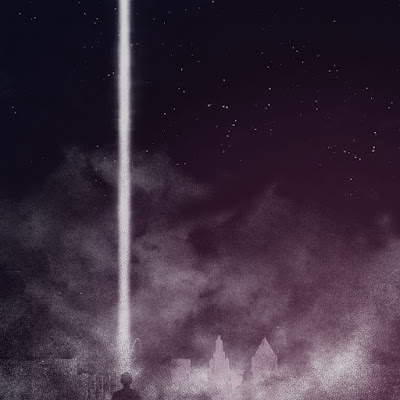Album Review: The Range - Potential
If Moby’s Play and
Burial’s entire affect got together and had one incredibly torrid night of
passion while listening to Endtroducing…
by DJ Shadow, the result would be Potential,
the new album from producer James Hinton, AKA The Range.
That sounds like kind of a hot mess, doesn’t it? But it’s
the easiest way to describe the things that are happening on Potential as Hinton pushes his cut and
paste aesthetic into more complex and dense territories.
Potential follows
Hinton’s debut as The Range, 2013’s Nonfiction,
an album that I reviewed for this very site—meaning I must have listened to it
a few times, but like many albums
that I reviewed for this site, I have retained no memory of it. Like, it looks like I gave it a pretty favorable review, but nothing from it apparently stuck
with me over the course of the last two and a half years.
Will anything from Potential
stick with me after this review has been posted and I’ve moved on to another
album to listen to?
It’s tough to say if it’s the kind of album that I’ll be
returning to, as I find myself moving farther and farther away from listening
to experimental, ambient, and electronic music regularly. But that’s not to say
that Potential isn’t an admirable
affair—it is. It’s a record that has no shortage of big ideas and more often
than not, succeeds in executing them.
After faltering slightly with the skeletal opening track,
“Regular,” the album finds its footing quickly with the double shot of two of
its strongest tracks—“Copper Wire” and “Florida.” The former making use of
Burial’s pitch shifted, disembodied vocal tracks, backing them up with gigantic
sounding warm synthesizers that work with the skittering percussion to create
an incredibly triumphant feeling; the latter taking chopped up steel drum
sounds and a beat that clips along at a fever pitch, mixed together with
pleading vocals that could have been lifted from a 1990’s R&B song to give
it a pop sensibility.
That gigantic, triumphant sound is repeated on the cacophony
created on “Falling Out of Phase,” where Hinton juxtaposes conflicting keyboard
sequences that all end up colliding into something that, surprisingly, isn’t a
jumbled mess of noises.
It’s also on songs like “Falling Out of Phase,” “No Loss,”
and the repetitive “Skeptical,” that the album starts to be a little less “care
free” or fun on the ears, and it starts to grow a little darker in its sonic
landscapes, and possibly begins to take itself a little too seriously.
But it’s that seriousness Hinton reconciles as the album
finds resolution in its trilogy of closing tracks—the hopeful “Retune,” the
shimmering “So,” and the plaintive “1804.”
In the times I have attempted to listen to Potential for review purposes, I have
had to resort to using my headphones—twice now, this album has been cause for
alarm on the part of my companion rabbit Annabell. Always the music critic
herself, I’m positive that she is not a fan of Hinton’s use of pitch shifted
vocal tracks and skittering, arrhythmic beats.
I, on the other hand, for the most part, am. It, again, is
certainly not a record that is grabbing me by the lapels and demanding my
attention, but Potential is
definitely a worthy and interesting listen, and Hinton himself deserves to be
commended for taking the time to construct something so complex while making it
look so effortless in the end.
Potential is out on 3/25 via Domino Records.
Potential is out on 3/25 via Domino Records.
